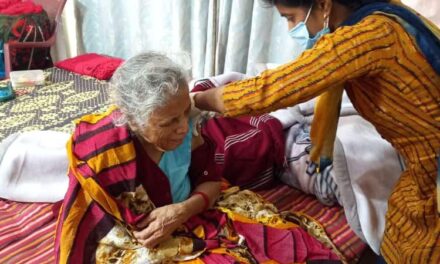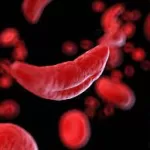Hypertension, commonly known as high blood pressure, has earned the title of the “silent killer” due to its often asymptomatic nature, which can lead to life-threatening complications if left unmanaged. Although hypertension might not show obvious signs early on, it can have devastating consequences, such as heart disease, stroke, and even kidney failure. Understanding the risks associated with hypertension and knowing how to manage blood pressure is crucial for maintaining long-term health.
What is Hypertension?
Hypertension occurs when the force of blood against the walls of your arteries is consistently too high. Blood pressure is measured in millimeters of mercury (mmHg) and expressed as two numbers: systolic pressure (the pressure when the heart beats) and diastolic pressure (the pressure when the heart rests between beats). A normal blood pressure reading is less than 120/80 mmHg. A consistent reading of 130/80 mmHg or higher indicates high blood pressure.
Types of Hypertension
Hypertension is classified into two types:
- Primary (Essential) Hypertension: This type accounts for 90-95% of cases and develops gradually without a specific cause. Lifestyle factors such as poor diet, lack of physical activity, and genetics often contribute to its development.
- Secondary Hypertension: This form of hypertension results from another medical condition, such as kidney disease, hormonal disorders, or the use of certain medications. Unlike primary hypertension, secondary hypertension can often be treated by addressing the underlying cause.
Symptoms of Hypertension
Hypertension is called the “silent killer” because most people do not experience symptoms until the condition is severe. However, some individuals may notice:
- Headaches
- Shortness of breath
- Dizziness
- Chest pain
- Vision problems
- Nosebleeds
These symptoms generally appear when blood pressure spikes dangerously high, underscoring the importance of early detection through regular monitoring.
Causes and Risk Factors
Although the exact cause of primary hypertension remains unclear, several factors increase the risk:
- Age: The risk of hypertension increases with age, especially after age 45.
- Family History: Hypertension tends to run in families.
- Obesity: Excess weight places extra strain on the heart and blood vessels, raising blood pressure.
- Sedentary Lifestyle: Lack of physical activity contributes to weight gain and higher blood pressure.
- Unhealthy Diet: Diets high in salt, processed foods, and alcohol can contribute to hypertension.
- Smoking: Tobacco use damages blood vessels, increasing the risk of hypertension and heart disease.
- Stress: Chronic stress can elevate blood pressure, especially when combined with poor coping mechanisms like overeating or smoking.
Managing Hypertension
While hypertension is a serious condition, it can be managed effectively through lifestyle changes and medication. Here are some ways to control high blood pressure:
- Adopt a Healthy Diet: Eating a balanced diet rich in fruits, vegetables, whole grains, and lean proteins can lower blood pressure. The DASH (Dietary Approaches to Stop Hypertension) diet is often recommended. It emphasizes reducing sodium intake while increasing potassium-rich foods like bananas and sweet potatoes.
- Regular Exercise: Engaging in at least 150 minutes of moderate physical activity each week, such as walking, cycling, or swimming, can help lower blood pressure.
- Maintain a Healthy Weight: Losing even a small amount of weight can significantly reduce blood pressure. Combining a healthy diet with regular exercise is the most effective way to achieve and maintain a healthy weight.
- Limit Alcohol and Avoid Smoking: Reducing alcohol consumption and quitting smoking can lower blood pressure and improve heart health. Women should limit alcohol to one drink per day, while men should not exceed two drinks daily.
- Manage Stress: Practicing stress-reduction techniques like deep breathing, meditation, and yoga can help keep blood pressure in check.
- Medications: For some individuals, lifestyle changes alone are insufficient, and medications may be necessary. Drugs like Amlodipine (MT 50 tablet) help relax blood vessels and reduce heart workload, effectively lowering blood pressure.
The Importance of Monitoring
Regular blood pressure monitoring is essential for managing hypertension. Home blood pressure monitors allow individuals to track their readings and share them with their healthcare provider, who can adjust treatment as needed.
Complications of Uncontrolled Hypertension
Uncontrolled hypertension can lead to serious, potentially fatal complications, including:
- Cardiovascular Disease: Hypertension damages arteries, increasing the risk of heart attacks and heart failure.
- Stroke: High blood pressure weakens blood vessels in the brain, raising the risk of stroke.
- Kidney Disease: Hypertension can damage the blood vessels in the kidneys, leading to kidney failure.
- Eye Damage: High blood pressure can affect blood vessels in the eyes, potentially leading to vision loss or blindness.
Conclusion
Hypertension may be a silent killer, but it can be controlled. By adopting a healthier lifestyle, taking prescribed medications, and regularly monitoring blood pressure, individuals can prevent the devastating consequences of this condition. If you suspect you have high blood pressure, consult your doctor to develop a personalized management plan. With the right approach, you can take control of your blood pressure and protect your health.











